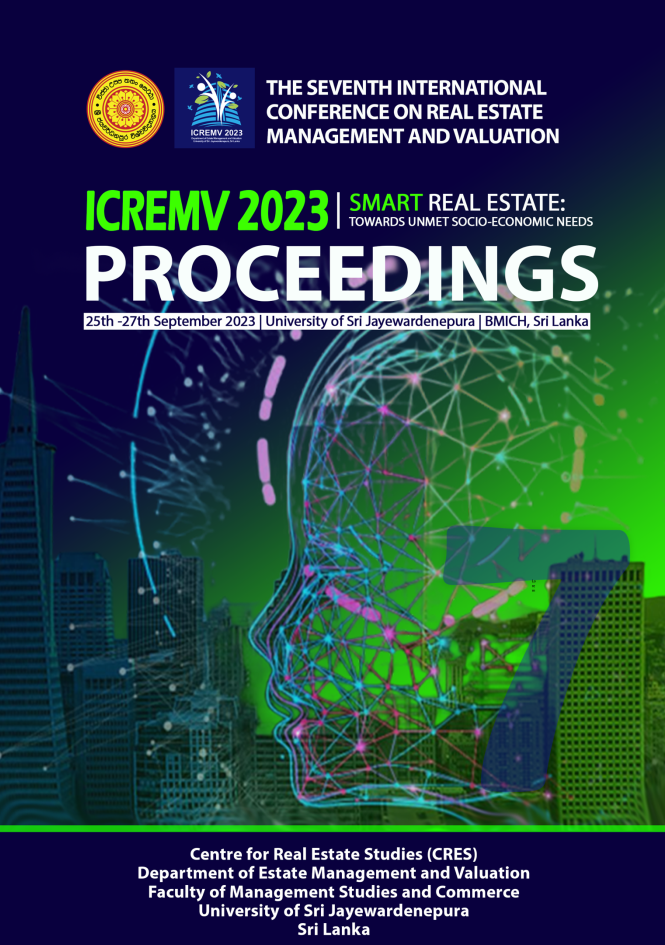Impediments in Energy Efficient Building Retrofitting: With Special Reference to Public University Buildings in Sri Lanka
DOI:
https://doi.org/10.31357/icremv.v7.6770Abstract
In a world where sustainability and energy conservation have taken center stage, the building sector, which happens to be the largest consumer of energy, finds itself at a critical crossroads. As sustainability and energy reduction become increasingly important, building retrofitting is recognized as a viable and sustainable solution. Retrofitting involves integrating new features and technology into existing buildings to enhance their efficiency. Despite the acknowledged need for building retrofitting, there is relatively low concern within the public sector, including university buildings. Various barriers hinder the adoption, implementation, and operation of energy-efficient retrofits in public university buildings in Sri Lanka. This study aimed to investigate these impediments. Qualitative methods were employed, and five professionals, including three architects and two institutional hierarchical heads in Finance and Legal Units, were interviewed. Data analysis was conducted using content analysis. The findings highlighted financial, procurement, energy assessment, technical, and legal aspects as barriers to energy-efficient retrofitting in public university buildings. Among these, technical barriers emerged as the predominant impeding category. Therefore, the authors recommend future studies to focus on in-depth examinations of technical barriers and their impacts on building retrofitting. Authors suggested several policy level implications as well.


